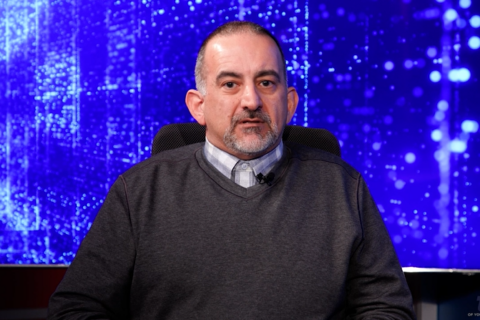This content is sponsored by Clean Virginia.
When it comes to energy bills, Virginians pay the sixth highest electric bills in the country with a monthly average of $135 according to the U.S. Energy Information Administration. While the legislature has the power to address the rising cost of electricity, utility monopolies have influenced lawmakers to keep prices high.
“Weak campaign finance laws allow our politicians to accept unlimited campaign contributions from the very utilities they have a duty to regulate,” said Clean Virginia Executive Director Brennan Gilmore. “This corruption stifles job growth and innovation, leads to high energy bills, and hurts our environment.”
Clean Virginia is calling for major changes to how the state manages its utilities, advocating for putting control back in the hands of residents and communities. Virginians could generate their own power and not only save money, but earn money. Especially for those struggling to pay their bills, the ability to produce their own energy, sell it to their neighbors, store it in their house and car, and pocket the money they formerly used to pay for utilities has the potential to be life changing.
Virginia could also benefit from multi-directional microgrids – an energy system that helps individuals, businesses, and communities take control of their energy production and consumption. Microgrids are usually made up of energy sources like wind turbines, solar panels, generators, and combined heat and power solutions. In addition, newer microgrids offer electric vehicle charging stations and energy storage options like batteries.
Microgrids can help create self-sufficient and empowered communities while also improving energy reliability and efficiency. Residents could use digital tools like sensors and smart meters that sync homes and businesses with the grid, so appliances automatically operate when electricity is cheapest, thereby lowering bills.
Clean Virginia also advocates for an open energy marketplace. Companies, communities, and individuals could sell energy onto a decentralized multidirectional grid. Spurring competition lowers prices and makes our grid more secure. Self-sufficient microgrids could help distribute energy more evenly across the state and prevent large-scale outages in case of natural disasters or security threats. Overcoming barriers that prevent Virginians from joining clean energy markets means they could start businesses using local resources to provide well-paid jobs in their communities and move the state closer to net zero energy.
You can be a part of the solution by joining the movement for energy reform. Start by signing up for Clean Virginia’s 30 Days of Action challenge to make your voice heard in the upcoming 30-day legislative session, from Jan. 13 to Feb. 11. You can also learn how to advocate effectively and in new and creative ways by joining the Clean Virginia legislative session kickoff event Jan. 12. For more information, visit CleanVirginia.org.







